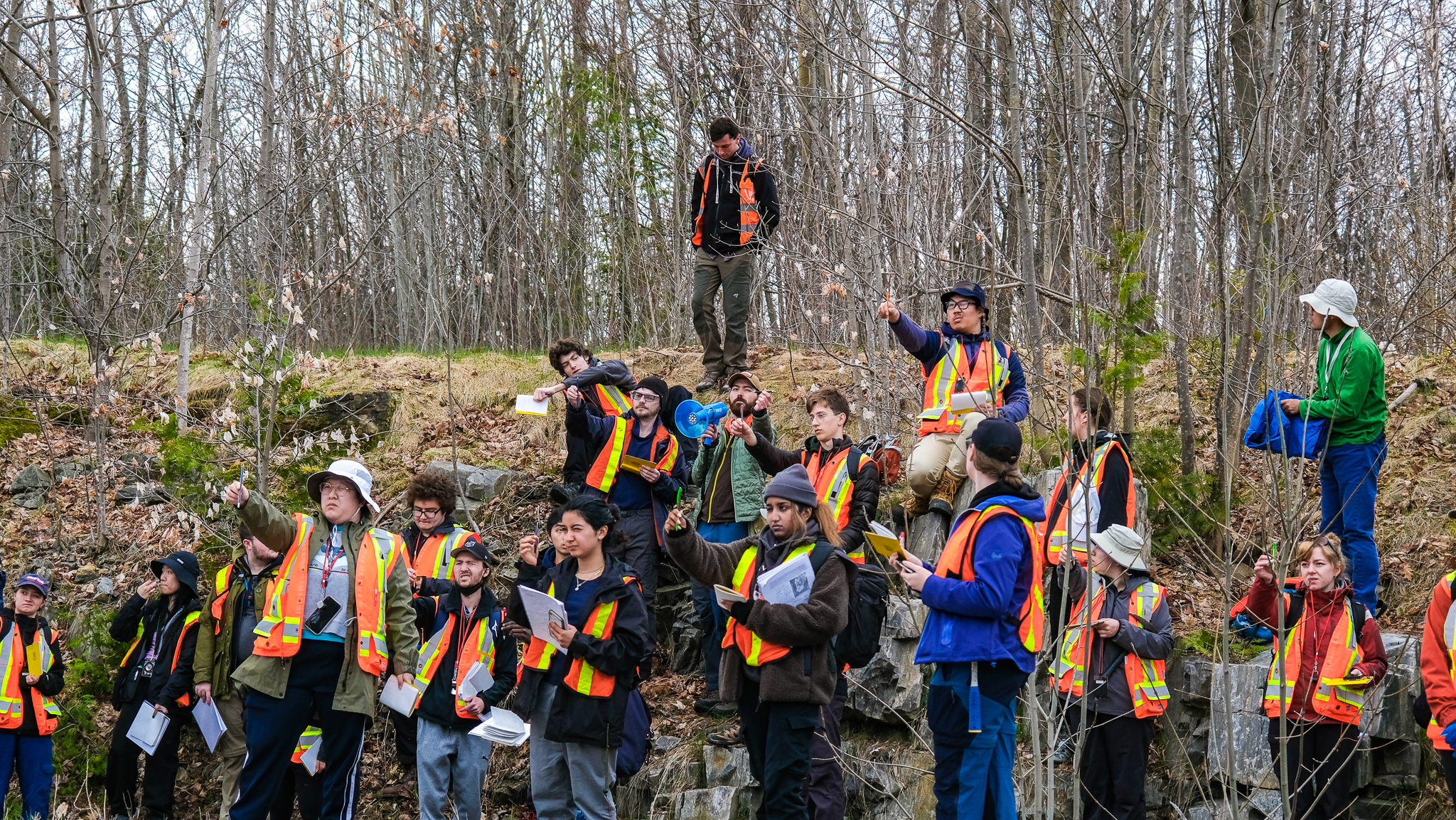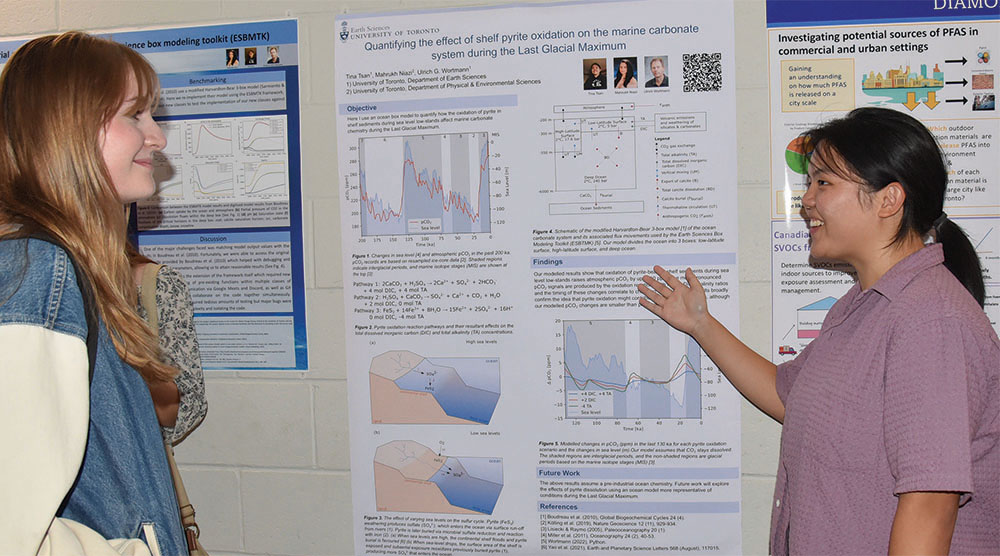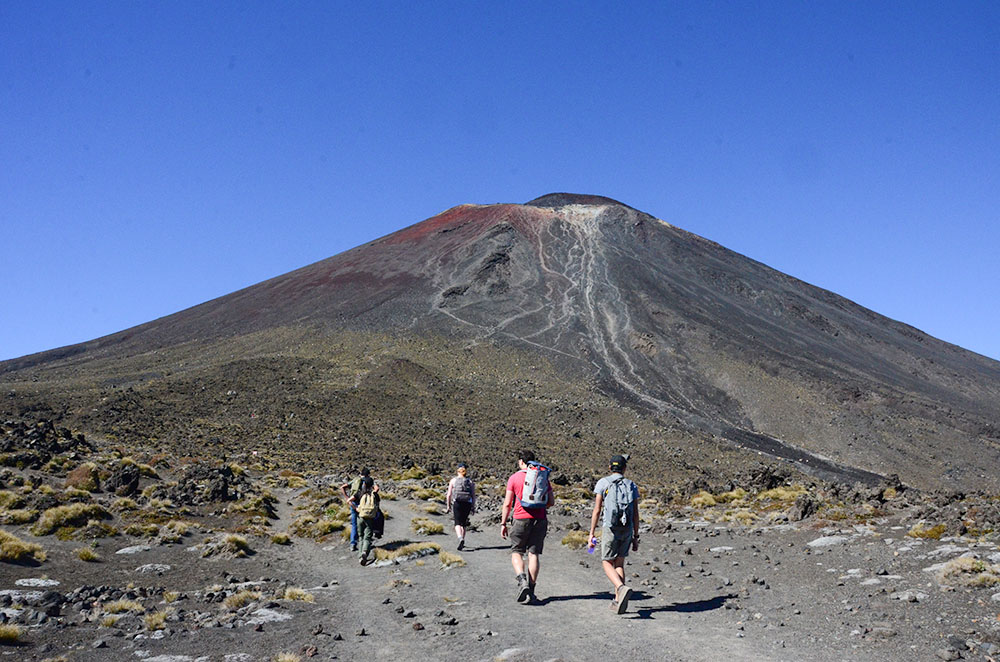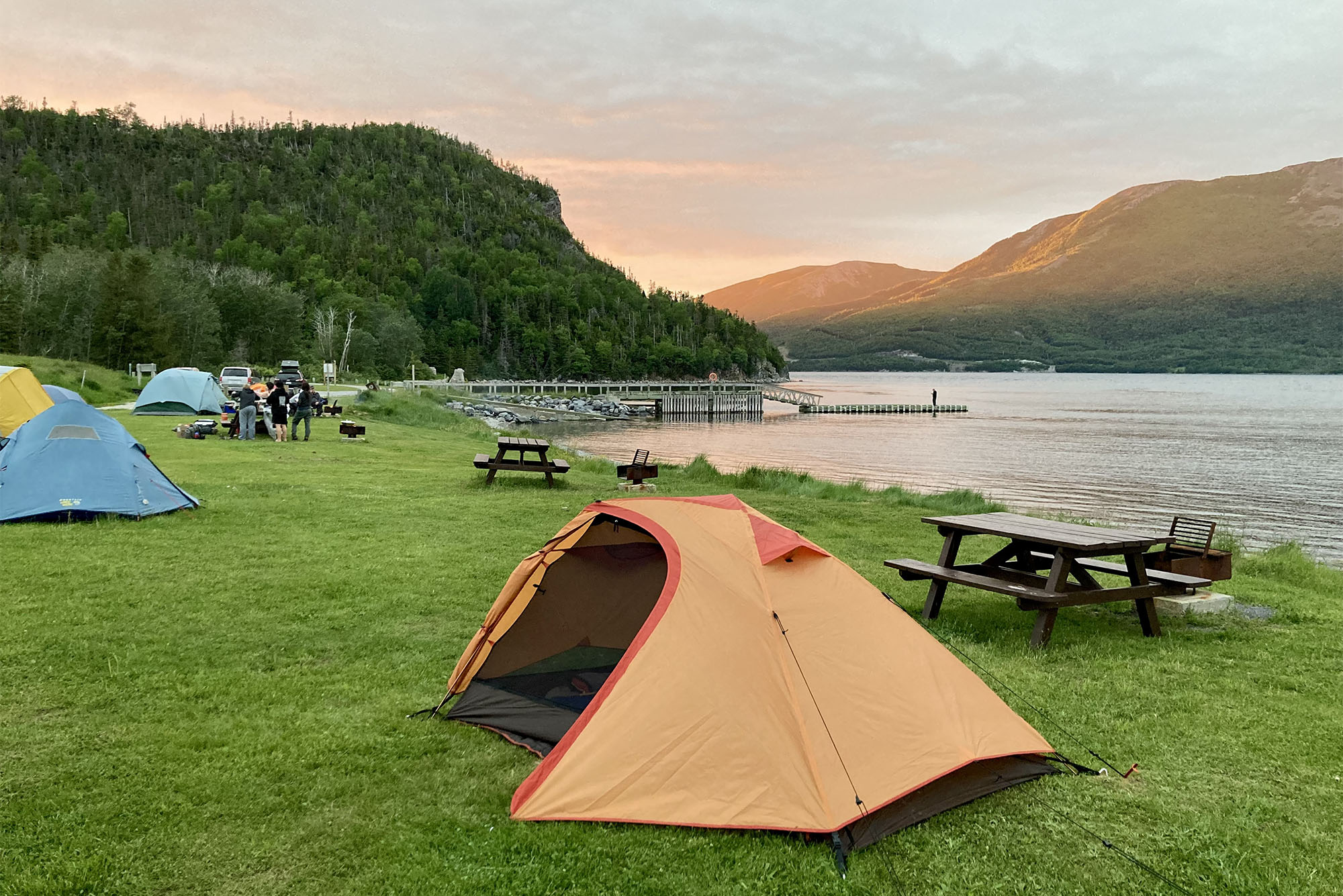Earth sciences students benefit from a wide range of experiential learning opportunities in the classrooms, at field courses, in research laboratories and travelling the world.
Some of the experiential learning opportunities in the Department of Earth Sciences include:

Field Courses
Most of our programs have a field course requirement that involves up to 10 days in the field learning techniques that are used by geosciene industries. For students who are unable to go out into the field there are interactive online field courses available.

Research Opportunities
Research experiences include the Research Opportunity Program, Directed Studies, Independent Experiential Study Project and Fourth Year Research Project courses.
Students can have an opportunity to work in the field and laboratories directly with a professor giving them a chance to dive deeper into a topic where they may present the results of the work to thier peers or at a reserach conference.

International & Indigenous Course Module (IICM)
Travel is an exciting part of the study of earth sciences. International and Indigenous Course Modules have become a popular part of several coursed in the department allowing students to travel the world. Recent trips have been to Türkiye, Chile, New Zealand, South Africa, Scotland, Iceland, Hawaii and Southwest USA. Recent Capstone courses for senior year students have been to Newfoundland and Labrador.

Capstone Field Course
The capstone course is an opportunity to integrate your collected knowledge of geology, geophysics, and environmental geoscience in an exciting and varied field setting. You will use information collected across a variety of field sites to examine how Earth processes have shaped the larger Earth system, and how this has influenced humans. Previous field sites include Scotland, Hawaii, Newfoundland and Labrador, and the southwestern USA.


